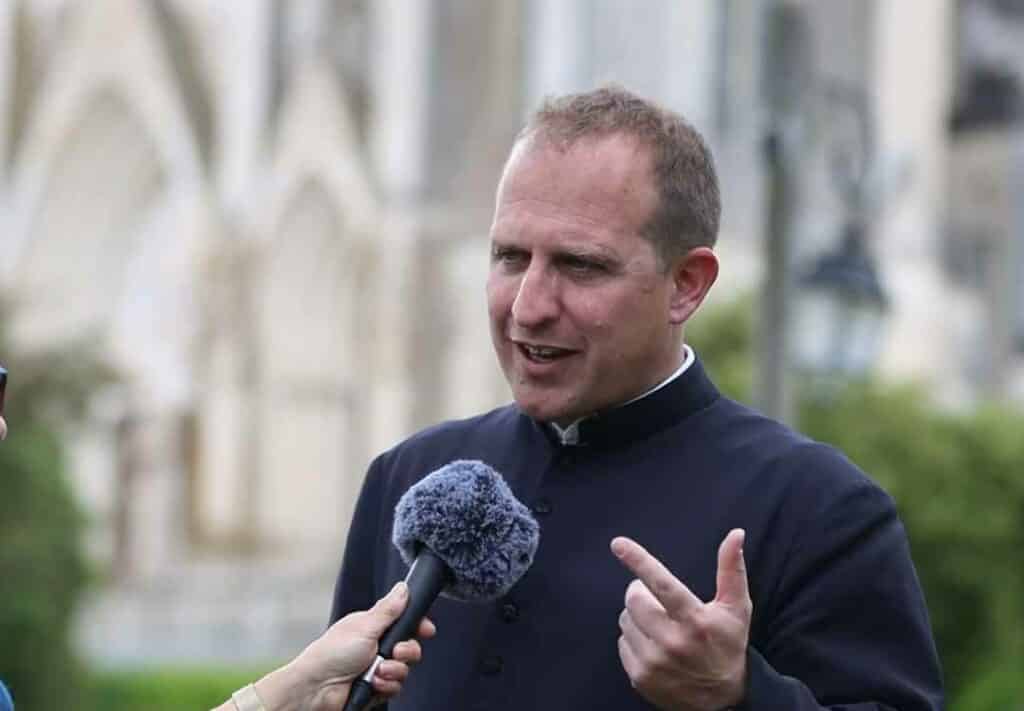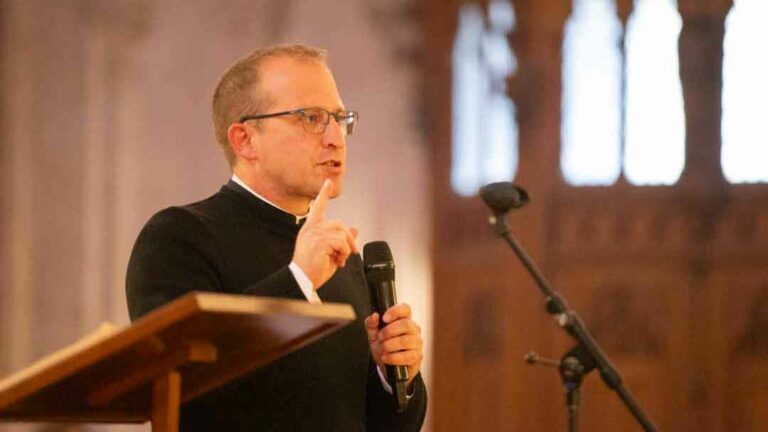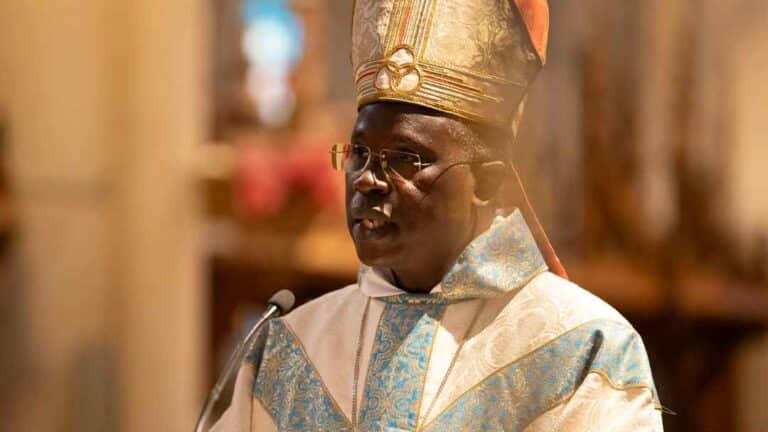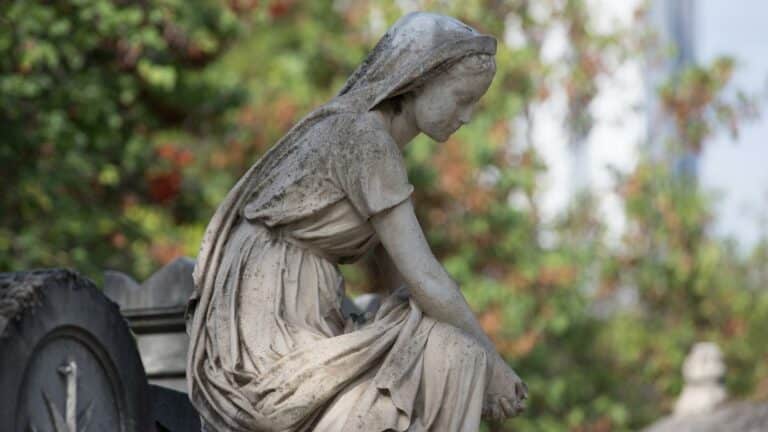Purgatory may sound as an elusive reality or something outdated. Still, whether people feel attracted by it, or disturbed or repelled, in Montligeon we are observing that more and more people are interested in this truth of faith. Could it simply be a process of purification in love? Don Paul Denizot, the rector of the shrine, who co-authored the book Le purgatoire dans tous ses états (EdB) scrutinizes purgatory in minute detail for the magazine Chemin d’éternité No 321.
Don Paul Denizot has been the rector of the Shrine Notre-Dame de Montligeon since 2018. He teaches dogmatic theology at the seminary of the Communauté Saint-Martin in Évron, and co-authored the book Le Purgatoire dans tous ses états (EdB).*
What is purgatory?
According to Catholicism, purgatory is a purification stage after death for a soul that was saved and forgiven whilst not completely open to the love of God or the love of neighbour because of the consequences of sin. God’s justice and mercy heal the soul and make it holy to prepare it to the joy of Heaven. It is the antechamber of paradise, just like the prodigal son is prepared by his father before he gets introduced into the banquet hall.
Is purgatory a place of real suffering?
Indeed, purgatory entails some suffering, which is the pain of love, the suffering caused by the desire to see God. Only the vision of God can fulfill our heart forever and make us completely happy. The suffering does not come from some punishment or some vengeful attitude from God.
Purification experienced in purgatory is a mixture of suffering and joy, because the soul feels it is about to be part of such happiness whilst not being able to reach it. Just like two fiancés who know they will soon get together again: as time goes on, desire and joy increase, and waiting becomes unbearable.
Another suffering experienced by the soul is when it goes through transformation as it sets free from the bounds of sin. The focus on certain things needs to be shifted, similar to the process of a withdrawal cure when you break free from addiction. Withdrawal is always painful, however, it sets us free and makes us healthy.
One word, ‘atonement’, may sound frightening…
Atoning does not mean undergoing justice from outside. It is about welcoming God’s justice and love to allow Him to transform and liberate you. In purgatory, regret or remorse do not exist. Instead, there is ‘compunction’, or, in other words, tears because we know you are loved even though we were not faithful to that love. Also, it means trusting God’s mercy, which is always much larger than our sins and all their consequences.
Atonement therefore is not an exterior process, it takes place within and has a transformative power. It is not consuming, but healing. Let’s consider for instance people who might have committed serious crimes and who, at the end of their lives, open to God’s forgiveness. If forgiveness is granted to them, they need to atone for their inequities in order to fully enjoy the joy of Heaven. Such is justice in purgatory, it always comes hand in hand with mercy.




